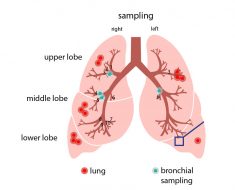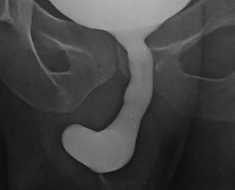Coronavirus: measures for the protection, care and treatment of the elderly
COVID-19, the disease caused by the novel Coronavirus SARS-CoV-2, is, for most people, mild. However, there are severe gradients. Seniors are one of the risk groups. Now concrete measures for the protection were presented to the care and treatment of older people.
The number of novel Coronavirus caused disease COVID-19 is increasing rapidly. As the Robert Koch Institute (RKI) explains, increases the risk of serious disease from 50 to 60 years steadily with age. According to the experts, in particular the elderly, due to less responsive immune system can become ill after infection severe. Therefore, it is important to protect this at-risk group particularly well against the Virus.
To progress the infection progresses, cushion shaft
The German society for geriatrics (DGG) has now presented concrete measures for the protection, care and treatment of older people.
“We have a message to all the legitimate concern about the care of our geriatric patients in the long term,” says DGG-President Professor Hans-Jürgen Heppner, chief physician at the geriatric medicine clinic at the Helios Klinikum Schwelm, in a press.
“We have to rely now on the support of each individual and on the consistent implementation of sensible measures, the progress of the cushion wave of Infection.”
What can do you yourself
The DGG has compiled tips on how to, for example, with the GP’s Visit in nursing homes, the can be completely of a pneumococcal vaccination or the care in the family care managed.
Concrete measures for the protection and care of older people:
General measures for the elderly and old people:
- Keep distance to other persons, at least 1,5 meters
- Hygiene: hands regularly for at least 20 to 30 seconds wash
- Events avoid
- Vaccinations complete
- Emergency list ready
Measures for technical personnel
Measures for the outpatient care of geriatric patients:
- Practice restrict contacts to a minimum
- Suspected cases for diagnosis and possibly therapy consult closely with the local health authorities
- Admissions limit in the case of emergency, outpatient clinics and hospitals to mandatory emergencies
Actions for in-patient care of geriatric patients:
- Day care facilities should limit your shots to the minimum
- Daily risk history rise
- No shots of applications with infection/cold characters
- Geriatric day hospitals should set the operation for the next few weeks completely
- Outpatient rehabilitation measures should be carried out only as individual therapies or in the domestic environment and to the minimum extent necessary limited
Measures to full in-patient care of geriatric patients:
- Detailed medical history to identify possible infectious contacts
- Implementation of the visit to ban
- No elective or plan and sliding shots
- For early signs of respiratory infections attention
- Pandemic plans according to the hospital planning to implement
Measures for the care of geriatric residents in nursing care facilities:
- As a rule, home visits are the result of the doctor temporarily suspend
- Educating staff and residents about the risks and protection measures
- Visit bans and minimum distance note
- For residents of nursing facilities, the same principles as in the prevention and outbreak management of other respiratory diseases – are deposited as of the RKI.
If Older homes are well maintained
Measures for the care of geriatric people in the family care of:
- In the case of older family members, or those with pre-existing conditions, consideration should be given to infection prevention all of the above rules.
- In the case of older or chronically ill family members in need of support, must be maintained, the rules for infection prevention, of course, also.
- It should take care of as a priority, the members of the family with the lowest risk of infection, and not just those who have symptoms of a respiratory disease, even if there are those who have been able to date always.
As a rule, visits expose: measures for home medical visits in nursing homes
According to the DGG, precautions must be taken, which are not allowed for this vulnerable group but in Isolation. An important measure is that, as a rule, visits at home, and will visit until Further notice suspended.
It is a good decision, regular visits to nursing homes, without specific Treatment is currently not performed. Thus, the further spread of Infection can be prevented. This recommendation is designed to be the next two to four weeks.
However, these are arbitrary Numbers that can be changed. The DGG is assumed that these decisions are again loosened and withdrawn in Parts, as soon as a first relaxation of the spread of the Virus.
This assessment must not, however, lead to the fact that the necessary measures are not taken.
In any case, it should first be made with the care facility or the patient or the patient by telephone and foreign history, whether a doctor’s home visit in this nursing home for the patient, or the patient is really necessary, or whether it is the first therapy measures can also be initiated without the appearance of the doctor on site.
Essential the contact with the local health Department is to be able to agree on a strategy. A blind spot in the emergency room solves the Problem in any way.
Missing protective equipment: Hygiene and logistics
In this context, the Problem of inadequate personal protective equipment appears again and again. This is known – no setup and is prepared for it.
However, this Problem can not solve the medical societies in the outpatient feeding actors on the ground. Here, Hygiene and logistics is needed: The reprocessing of previously used material has to be discussed according to the DGG in these times, certainly.
Risk for a severe course
It is crucial to know that the increased risk for a severe course refers mainly to the Elderly and people with pre-existing conditions. The RKI and the Federal government, the following risk groups:
- older people (with increasing risk for severe course of about 50 to 60 years), as well as
- Smokers.
- Also in people with certain pre-existing conditions, it is rather a severe course. Including people fall
- with diseases of the heart (e.g. coronary heart disease),
- with diseases of the lungs (for example, Asthma, chronic Bronchitis),
- with chronic liver disease
- with Diabetes mellitus (sugar diabetes),
- with cancer, as well as
- with a weakened immune system (for example, due to a disease, which is associated with an immune deficiency or taking medication that weaken the immune system, is caused – including cortisone).
This listing reminds of the defined risk groups for Influenza or pneumococcal disease. The DGG points out that the completion of the pneumococcal vaccination is very useful. However, only a few stocks of vaccines are currently available.
Caregivers: risk of contacts in any case, avoid
In the patients, which are supplied in the domestic environment of their families, it behaves like anywhere in the General population: risk contacts are to be avoided in any case, carers must currently, even without reasonable suspicion – from the social life in the environment to the extent that it is possible to withdraw, in order not to endanger their high-risk relatives unnecessarily.
Alternatives to direct contact: video conference, Live chat, visiting in front of the window on the ground floor.
A key challenge is the care of the residents, and residents in long-term care facilities. Here, in the meantime, the measures for infection were tightened, the prevention of enormous and rich now up to a visiting ban.
This is certainly sensible, nevertheless, it has on family and friends contacts are not omitted. There are plenty of ways to create alternative contacts. This includes regular video circuits, Live Chats, Social Media, or visiting in front of the window on the ground floor of a care facility include. (ad)





